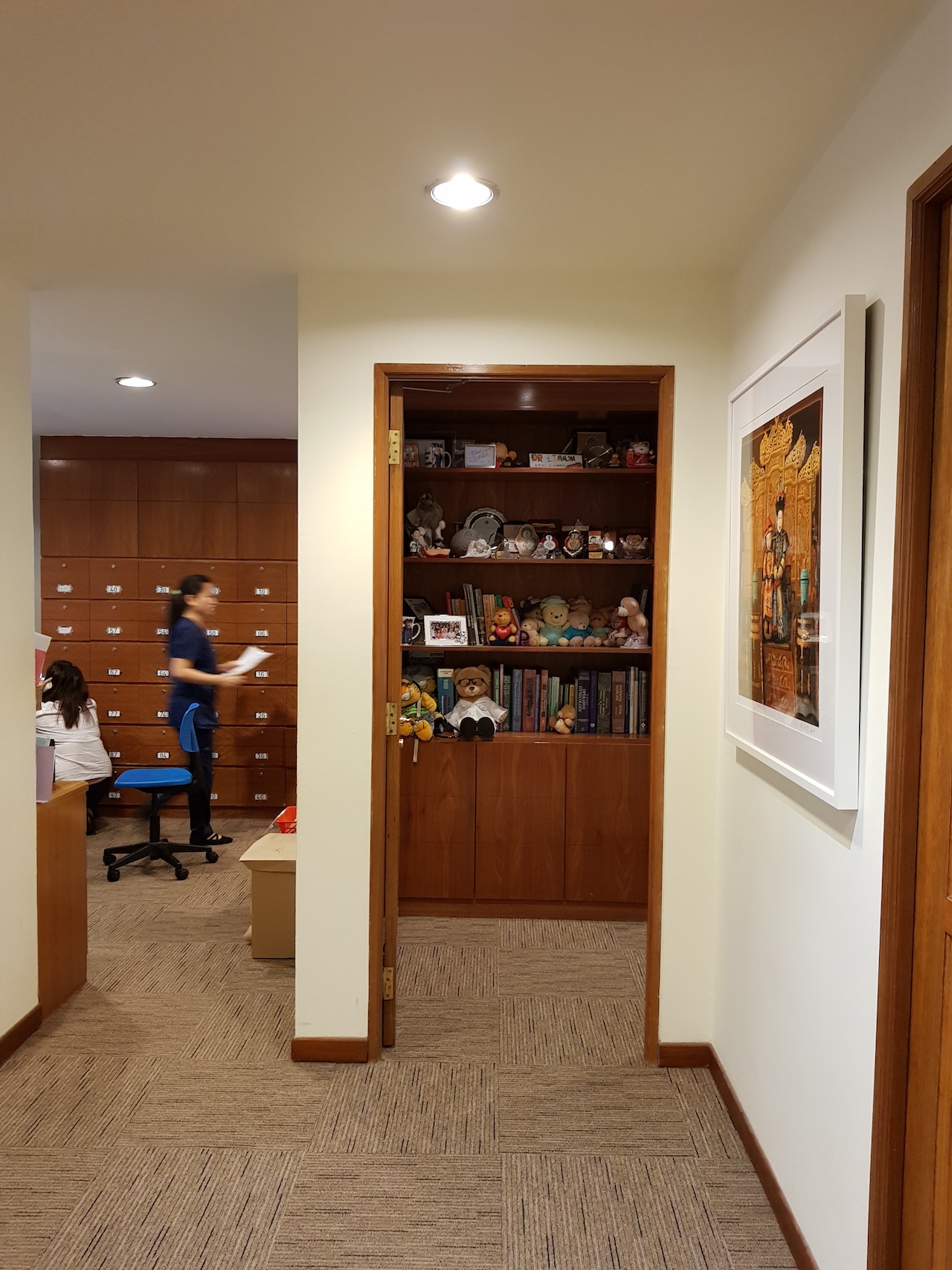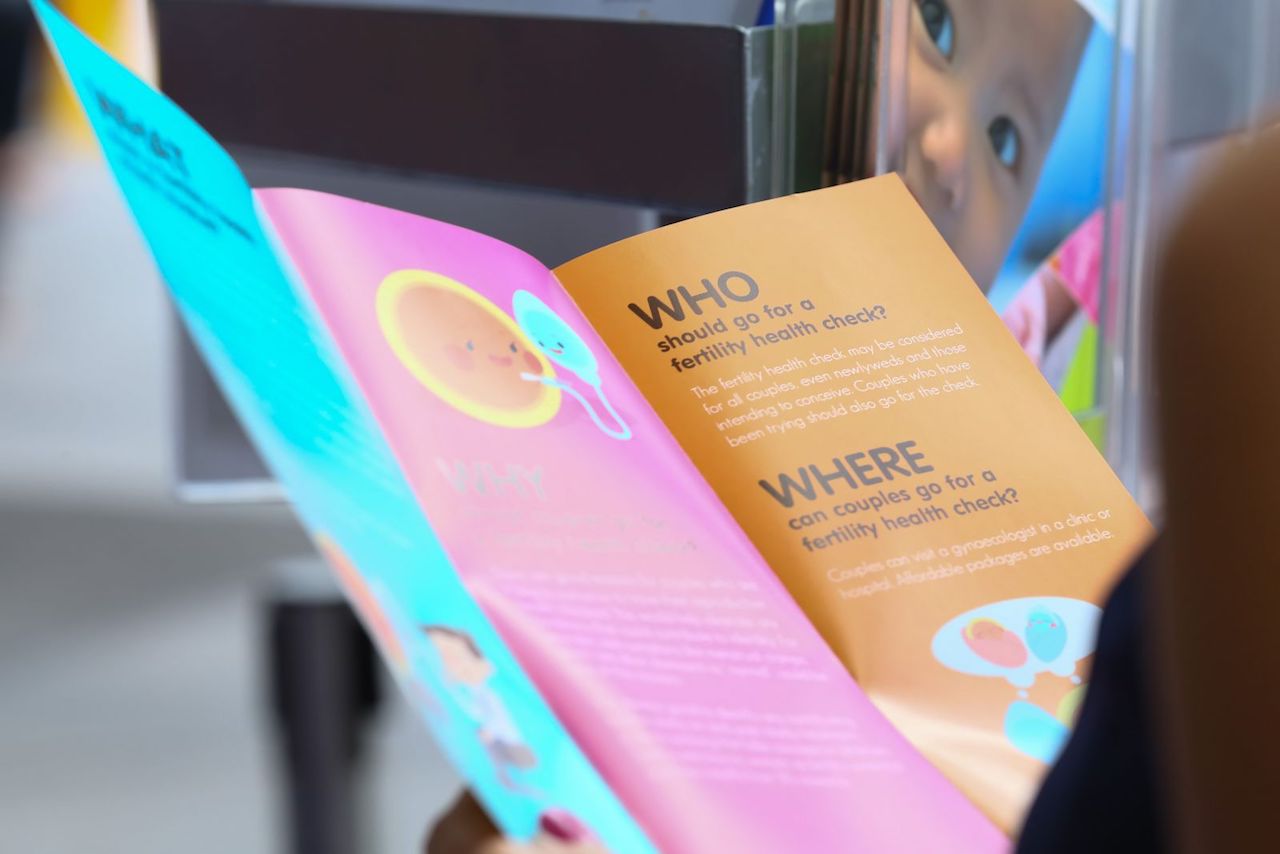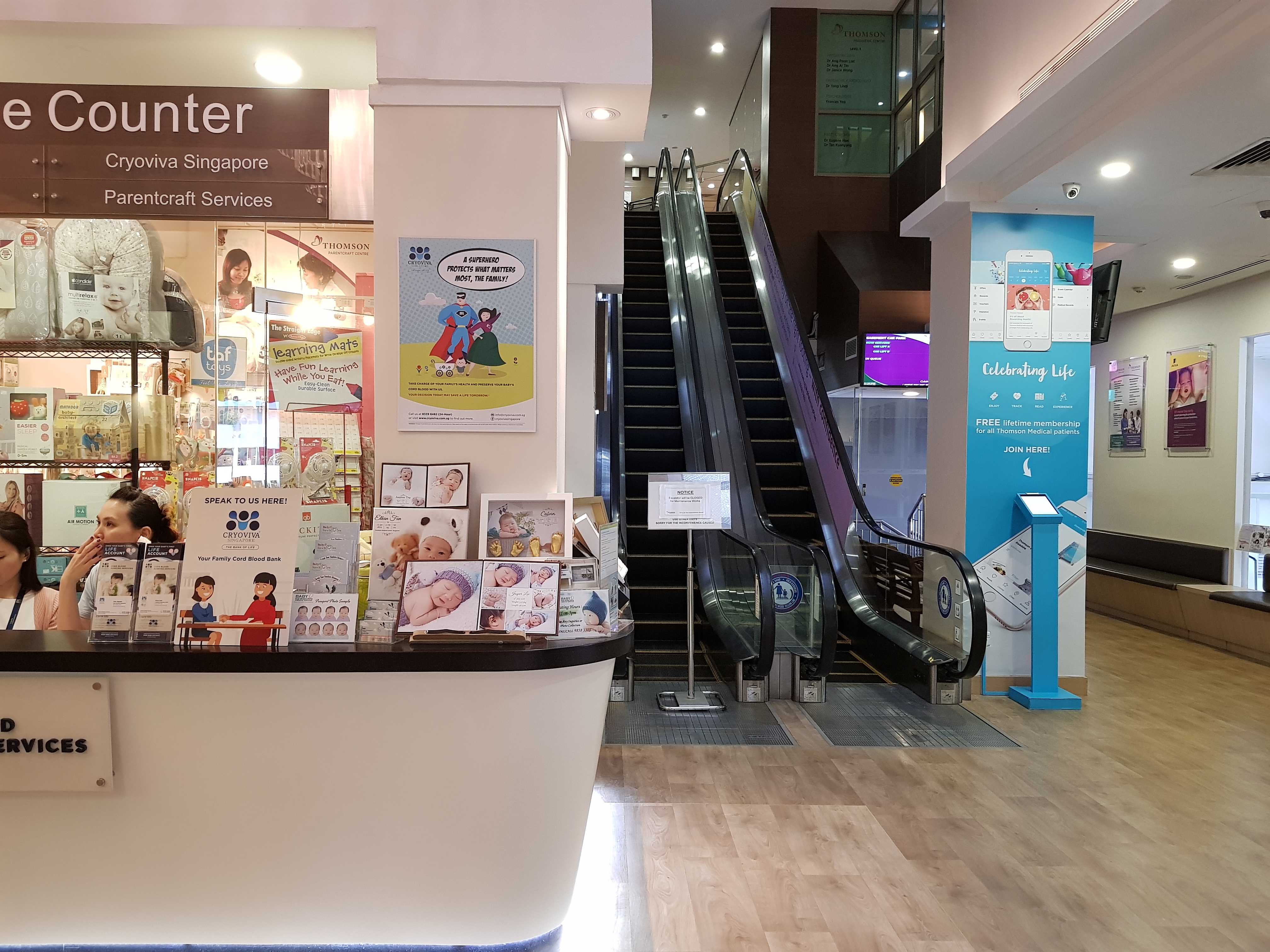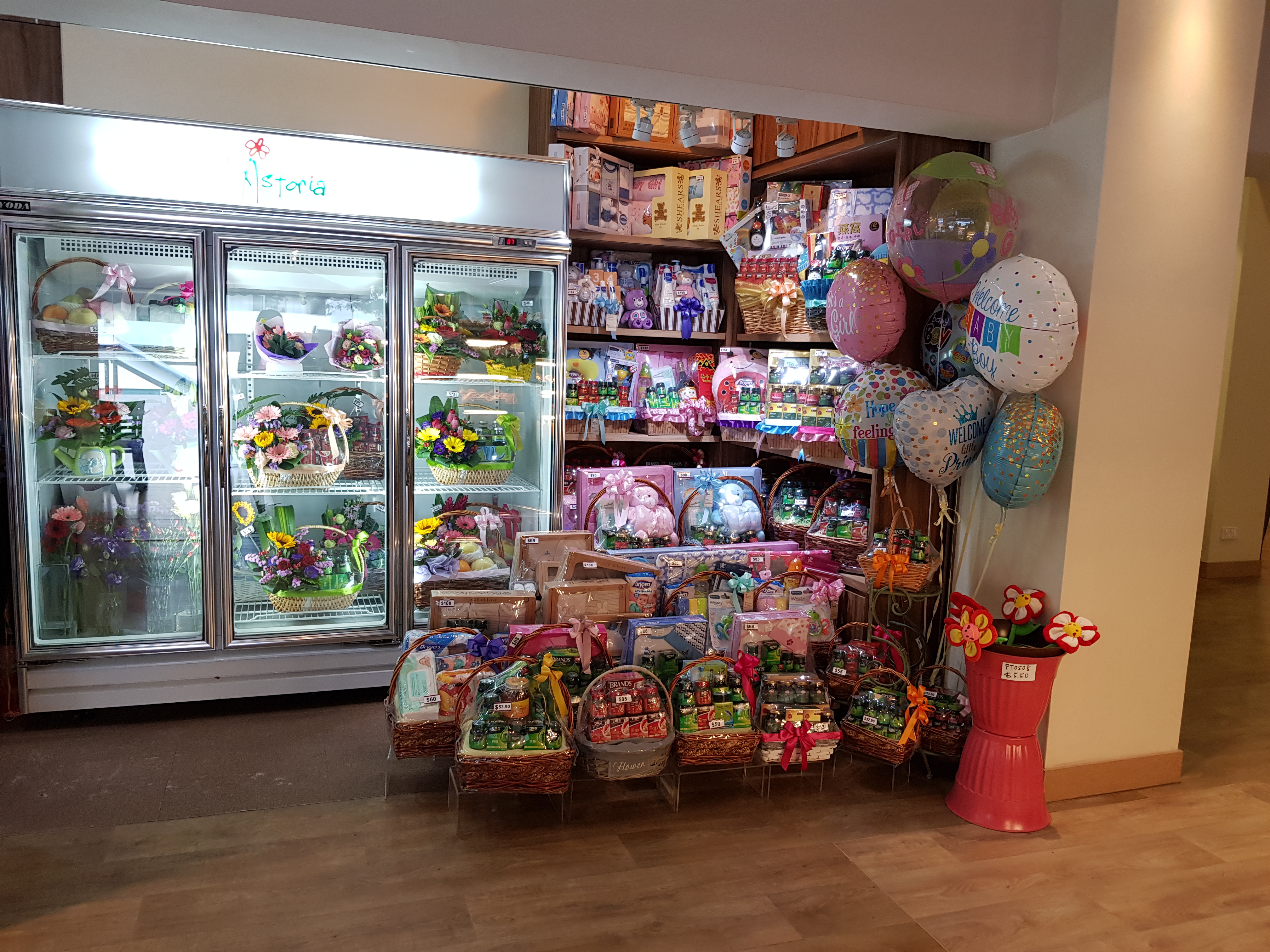Top image: Dr Pamela Tan
Every gynaecologist’s office sports similar features: a collage of mom-and-baby pictures and thank you cards pinned to the walls; a cute animal calendar conspicuously placed on the desk for the clients’ viewing pleasure; the soft glow of pastels and nudes that seem specifically chosen to induce a reflexive spike in oestrogen levels.
The only times I’m ever at the gynae is to get birth control. Today I’m here about egg freezing.
Until recently, the subject matter has always sounded like the stuff of a sci-fi novel. Prolonging your fertility by cryogenically preserving your eggs. Essentially, that means flash freezing them while you’re young so you can put them in cold storage for years.
Now we’re talking about a commercially available procedure that gives women this choice which will allow them to delay motherhood. Social progress has paved the way for women to say “no” to motherhood; for the first time in history, women can also say “not yet”.
But not in Singapore. It is illegal to freeze your eggs for ‘social’ reasons such as wanting to give yourself more time to establish your career or find a suitable partner.
I hadn’t discovered this until recently, over coffee with a colleague.
“That’s why Ase Wang froze her eggs in Thailand,” he informed me, referring to the local actress and model, “She vlogged about it, you should check it out.” I made a note of Ase’s name on a pad of paper and underneath it, I scribbled in capital letters: WHY ISN’T EGG FREEZING PERMITTED IN SINGAPORE?

A few days later I found myself clutching my notepad, sitting across from Dr Pamela Tan, a gynaecologist who has for the last two years been a sherpa for women who want to freeze their eggs but don’t know how to go about it.
“My job is to provide information [on egg freezing] in a balanced manner that helps an interested woman decide if this procedure is something she would find beneficial and she would be keen to pursue,” she tells me. “After detailed counselling and fertility evaluation, and if the woman decides to proceed, … I help facilitate [the process] by pointing her to the various options overseas.”
Dr Tan pulls up a set of PowerPoint slides and invites me to take a seat next to her. Then, she begins her presentation, one she’s given dozens of times before.
Celebrity-endorsed, government-prohibited
The day before I speak to Dr Tan, I’m at a cafe with Ase to talk about the Youtube video she’d published in July. It was a 15-minute compilation of daily video diary entries that documented her egg freezing journey—from hormone injections to the extraction of the eggs. We get glimpses of her lying in the doctor’s office, at a dinner party with friends, on set at a photo shoot. But mostly she’s just at home, barefaced in her pyjamas (and still achingly luminous).
“Initially when I decided to make the video, I was just like, ‘I’m bored, and I have 12 days.’ This was my way of dealing with it, and also just to show people what it’s going to be like,” Ase tells me as she cradles a takeaway mocha in her hands.
What followed surprised her. The video went viral. Media outlets picked up on it, and within days the internet was buzzing. Hundreds of women reached out to her to thank her for advocating for change.
In the video, Ase looks directly into the camera as she summarises the day’s happenings: injections and ultrasounds, bloating and headaches, and feelings, lots of them. When it comes to her feelings, she is honest but doesn’t dwell.
“I’m not too sure if it’s the medicine, or maybe I’m just anxious. Maybe I’m just worried,” she tells her audience on Day 2, her words tumbling out through tears.
Single at 36, Ase was told by her doctor that her egg reserves were extremely low, and if she waited any longer it was unlikely that she’d get pregnant naturally. Like many women who receive such news, she panicked.
“I got upset,” she says. “I didn’t really want to believe it.”
She didn’t have much time to stay in denial. If she did want a child from her own eggs, she either had to pop one out pronto or preserve her eggs for the future. But the latter isn’t permitted in Singapore, and she was not ready to have a child right then.
“I’m very traditional. I believe in marriage before kids, I believe in the order that it should be.”
There’s conviction in her voice. But what were her options?
“Do I need to go out and get cancer?” Ase asks pointedly, her irritation directed at the laws surrounding egg freezing. In Singapore, the only women allowed to freeze their eggs are those who have to undergo medical procedures that are toxic to the ovaries or that may potentially damage the eggs.
“Should I rush to find a partner who might be the wrong one, and then end up divorced?”
Tap, tap, tap go her slender fingers on the side of the paper cup. It’s a rhetorical question, of course. Fortunately, Ase found a reliable fertility clinic in Bangkok that would freeze and store her eggs for her. She wasted no time, and within three weeks she was there going through her first cycle.
Where there was joy and sorrow in the Ase on screen, now, I see only anguish. Or is it anger? No, it is helplessness. Not for herself, but on behalf of each one of the thousands of women who witnessed this incredible happy milestone in her life.
Many Singapore women had written to her to say they wished they could go for the procedure too, but that they lacked the funding to go to Bangkok as she did. And they felt like they were backed into a corner. Meeting this darker, disenfranchised off-camera iteration of her who inadvertently became their mouthpiece, I felt helpless too.
A woman’s body is her prison
Throughout September, the local voluntary welfare organisation I Love Children (ILC) ran its ‘Know Your Fertility Wellness’ campaign. Plastered on every surface of the MRT train, cartoon gametes and their superhero friends remind me that the quality and number of my eggs will dip the second I hit 30.
“Go for a fertility health check as a couple,” is the overt message, although the subtext reads: “Get hitched and have babies before it’s too late!”

The campaign urges Singaporeans to take family planning seriously. Not included in the options available is freezing your eggs, which might allow one to delay motherhood in order to prioritise other aspects of one’s life.
It was coloured with judgement directed at the woman who doesn’t want kids or doesn’t want them in her supposed ‘prime’, as though her morality is tainted by childlessness. As if she isn’t fulfilling her civic duty or her obligation to her forebears and the rest of society, just because her priorities lie elsewhere (for now).
Yet I’ve heard women speak, often in confidence, of their yearning to start a family. Maternal urges swell in their gut every time a squirming toddler in a stroller rolls up in their peripheral vision. Pangs of longing for tiny, pillowy limbs and a feathery light head of hair pressed close to the heart centre.
Many a time, these are clandestine desires, spoken softly behind closed doors, forbidden by virtue of being decidedly anti-feminist. Many of us just can’t keep up with the pace of life dictated by our biological ages, and we hate to admit it.
A Singapore woman, feminist or otherwise, must find her footing before she can expect to carry a child. She’s internalised the institutionalised pragmatism and risk aversion that has permeated almost all spheres of her life from a young age. She knows she has to invest in her career and relationships, and the self she may have yet to define.
A child is the most costly investment, both socially and financially. It is also a seismic event, a historic shift in the topography of her existence; one she must painstakingly lay the groundwork for.
But in the midst of her preparation, her body betrays her. It holds the sacred seeds of new life, but it is finite and ever-diminishing in supply. Mockingly, it presents only a narrow window spanning her late teenage years to her early thirties and goads the woman to make her move.
Have you established your career, gotten a reliable partner, built a home? Time is running out.
Her body mirrors the trickle of time with a stream of blood that drips, drips, drips from a leak in the closed circuit of the heart, arteries, veins. In synchrony with the rhythms and cycles of an ageless moon, the moonless night skies remind her that she too is fading.
So seductive then is the promise of more time. We place a premium on it.
In fact, we are desperate to purchase it, willing to pay for the chance to cling to a piece of the present that threatens to disappear into the near horizon: options in the stock market, timeshares for a resort, a gym membership, the more precious half of an unborn child.

Gambling with human eggs
Dr Tan’s slideshow is accompanied by a well-rehearsed script, “We’re talking about fertility preservation or oocyte cryopreservation, also known as egg freezing.”
“In the case of social egg freezing, patients defer childbearing but they’re keen to retain their childbearing potential,” she says.
Not only does the number of eggs you have decrease with age, but your egg quality also falls too, causing the chance of genetic abnormalities to increase. And some women, like Ase, just have a lower ovarian reserve, meaning they are born with fewer eggs in their lifetimes. Lifestyle factors like smoking also deplete your reserve.
Extract your eggs and store them before the quality and quantity of your eggs take a nosedive, and you have the option of using them several years down the line when the other aspects of your life have stabilised.
It is recommended that each woman goes through one to three cycles of egg freezing in order to retrieve as many eggs as they can to maximise the chances of a live birth.
“The higher the number of eggs you retrieve, the higher chance of success. Not all eggs survive the process of being frozen, and not all that are frozen will survive the thawing,” explains Dr Tan.
“And not all remaining eggs will be fertilised by the sperm. And depending on age, your embryos may or may not be of good quality. Not all embryos that are transferred will be implanted. Not all embryos that are implanted will be normal and continue to a live birth. So you can see that at every step of the way there’s a risk of loss.”
Because the success rate is highly correlated to age, Dr Tan estimates that “eight eggs [retrieved] from a 25-year-old would probably do better than 20 eggs from a 40-year-old. 20 to 30 eggs in a woman in her 30s would probably stand a good chance of taking home a baby.”
The stakes are high for several other reasons too.
“It is possible that a cycle gets cancelled because there weren’t enough eggs produced. There’s a variation of follicle numbers from cycle to cycle as well,” says Dr Tan. Each cycle is costly, upwards of $3,000 for the drugs alone, and thousands more for the consultation, extraction, and annual storage fees. Throw in flight tickets and accommodation costs, and before you know it you’ve racked up a bill of $20,000 or more.

But age remains the biggest factor. Because by the time most women even consider freezing their eggs, they are already 35 or older, and the number of eggs they can retrieve might be as few as six or seven, or in the worst-case scenario, none.
“It shouldn’t be a last-ditch effort,” Dr Tan warns. Unless you have realistic expectations, she would advise you against freezing your eggs in your 40s. The best time to freeze your eggs is in your 20s, say researchers, and it’s best to do so before you turn 37.
Sometimes, the gamble pays off. At the end of her video, Ase’s voice breaks as she shares the news that she got four eggs from her first cycle, which is significant for someone who naturally has low ovarian reserves. In time to come, she’ll undergo two more cycles to retrieve as many eggs as she can.
Dr Tan goes through the laundry list of other risks: mild side effects and discomfort, and in rare cases, ovarian hyperstimulation syndrome that can cause deep vein thrombosis, and bleeding or infection during the procedure.
“The question is that of long-term risk, whether or not there’s an increased risk of breast cancer with IVF stimulation,” Dr Tan notes. IVF patient studies suggest that there isn’t, but doctors can only extrapolate from that research. And there are isolated cases of young egg donors who’ve gone through multiple stimulations and seemed to develop cancer as a result of that.
“There isn’t enough data, so it’s hard to say.”
Dr Tan concludes with a sobering word of advice: “It is a costly insurance policy you hope you’ll never need that buys you the probability of motherhood but without a 100% guarantee of a payout.”
She adds, “It’s hard to put a price on motherhood, isn’t it?”
Ah Kong knows better
The true price of fertility preservation is hard to ascertain. But armed with the knowledge of all the risks and costs relating to egg freezing, women would ideally be able to make the call on whether or not to undergo the procedure.
It doesn’t matter though, because the very same system of government that cultivated us to be the self-possessed and rational thinkers capable of seeing all sides of a problem presented to us has taken the decision out of our hands.
Frustratingly, the Ministry of Health has been rather opaque with its reasons for making social egg freezing illegal. To date, they have ignored my requests for comment.

Doctors here have lobbied to change the laws, citing the 2013 decision by the American Society of Reproductive Medicine to lift the ‘experimental’ label on egg freezing as proof that it is safe enough to introduce in Singapore. But MOH remained unmoved. What’s more puzzling still is that the policy seems to run counter to their efforts to boost population numbers.
I can only surmise that the ministry fears it will encourage more younger women to postpone childbearing and deems the costs incurred by individuals who want to undergo egg freezing higher than any potential benefit that more successful births at a later maternal age serve to Singaporean society. Easier to bait young women to settle down earlier with housing benefits, healthcare subsidies, and fertility health campaigns.
This is the typically paternalistic approach we should be used to by now. And this is precisely what makes it so dangerous. We’ve become so accustomed to the patriarchal leanings of our society that tell us a man’s ambition is more important than a woman’s simply because of boundaries that biology has set for her, we hardly push back.
And yet. This isn’t anything like the other nanny state rules we must adhere to, whether it’s e-cigarettes, sports betting, or alcohol consumption in public. Unlike those other bans, which are imposed on things external to us, this legislation on egg freezing reaches deep within the physical boundaries of its citizens’ bodies and rips the choice right out of them.
To every woman who wants a child but isn’t ready, this infringement feels acutely personal and painfully intrusive. And whereas women like Ase belonging to the upper-middle-class or higher can defiantly make the trip to Bangkok, Spain, or the US to regain some control over the gonads that insist on punishing them by springing leaks in their youth, it is the woman who cannot afford this act of protest who hurts the most from the government ban.
This woman bears the burden of knowledge and possibilities, yet is truly helpless to act on it. Deprived of her agency, she is flung far across the gaping chasm between the uncertain now and the future she has envisioned for herself.
This psychological torture eating at her is what we forget when we make the cost-benefit analysis for egg freezing. Who can blame a people that have been trained to think habitually in terms of pros versus cons and risks versus rewards? The large hat of the economist obscures the vision of the compassionate humanist within all of us. I am an outsider looking in. I still have no desire to have children, and probably never will.
But I recognise in Ase Wang and in Dr Pamela Tan the respect for how motherhood cannot be reduced to numbers and probabilities. It is an intensely private yet universally shared experience that is powerful enough to move the disempowered like them to find workarounds and to support other women with advocacy and information. And it should be fiercely defended, at all costs, not just by individuals but by the state as well.






